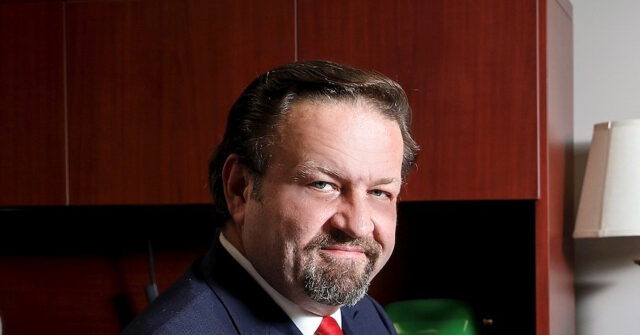On Saturday, President-Elect Donald Trump made a significant announcement regarding national security leadership within his upcoming administration. He appointed Dr. Sebastian Gorka, a former senior official from the Trump administration, to the role of Deputy Assistant to the President and Senior Director of Counterterrorism. This decision has sparked interest, particularly given Gorka’s established track record of advocating for the “America First” agenda since 2015 and his previous contributions as a strategist during Trump’s first administration. Trump emphasized Gorka’s dedication to the MAGA Movement, suggesting that his return to a key position reflects both continuity in strategic approach and a deep commitment to the policies that Trump champions.
Dr. Gorka’s professional background is noteworthy and highlights his extensive experience in national security. A legal immigrant to the United States, he boasts over three decades of expertise in this field. His notable accolades include serving as the Major General Matthew C. Horner Chair of Military Theory at the Marine University Foundation, where he taught military strategies, and contributing as a guest instructor at the JFK Special Warfare Center and School located at Fort Bragg, a hub for U.S. Army Special Operations Forces. These roles not only underscore his academic and theoretical prowess in military affairs but also reflect his hands-on experience in a critical sector of governmental operations.
In addition to his teaching accomplishments, Gorka has played significant roles within the United States’ defense establishment. Prior to his appointment, he was the Associate Dean for Congressional Affairs and Relations to the Special Operations Community at the National Defense University and held the Kokkalis Fellowship at Harvard’s Kennedy School of Government. His work in these positions has equipped him with a nuanced understanding of the interplay between military, policy, and legislative processes. Furthermore, Gorka’s dedication to counterterrorism efforts earned him recognition, exemplified by his receipt of the DoD Joint Civilian Service Commendation from the U.S. Special Operations Command (USSOCOM), further solidifying his credentials in this crucial area of national security.
Beyond his formal roles within defense agencies and academic institutions, Gorka also made a name for himself in media circles as the national security editor at Breitbart News, where he analyzed and provided commentary on critical issues facing the nation. His platform at Breitbart allowed him to articulate perspectives aligned with Trump’s agenda and connect with a wide audience that supports conservative viewpoints, showcasing his influence in shaping public discourse regarding security matters. Gorka’s media presence, combined with his strategic advisory roles, positions him as a prominent figure in both the political and national security arenas.
In response to his appointment, Dr. Gorka expressed his gratitude and enthusiasm via social media, stating, “Honored beyond words to serve President @realDonaldTrump once again, in what will be the greatest Administration of the modern age.” His statement echoes a commitment to the objectives laid out under the Trump presidency and suggests his readiness to tackle the multifaceted challenges facing national security, particularly in the realm of counterterrorism. Gorka’s alignment with Trump’s vision is expected to drive efforts toward maintaining a robust approach to combating threats that America faces both domestically and internationally.
As Trump prepares to take office again, the appointment of experienced and ideologically aligned figures like Dr. Sebastian Gorka indicates a continuation of his administration’s focus on national security and a hardline approach to counterterrorism. This choice not only reflects Trump’s reliance on familiar personnel but also highlights the broader thematic elements of his administration, which prioritize America’s sovereignty and the defense of its interests. As Gorka steps into his new role, the implications of his previous experiences, ideological stance, and media engagement will undoubtedly play a significant role in shaping future policy directions and operational strategies in the arena of U.S. national security.

